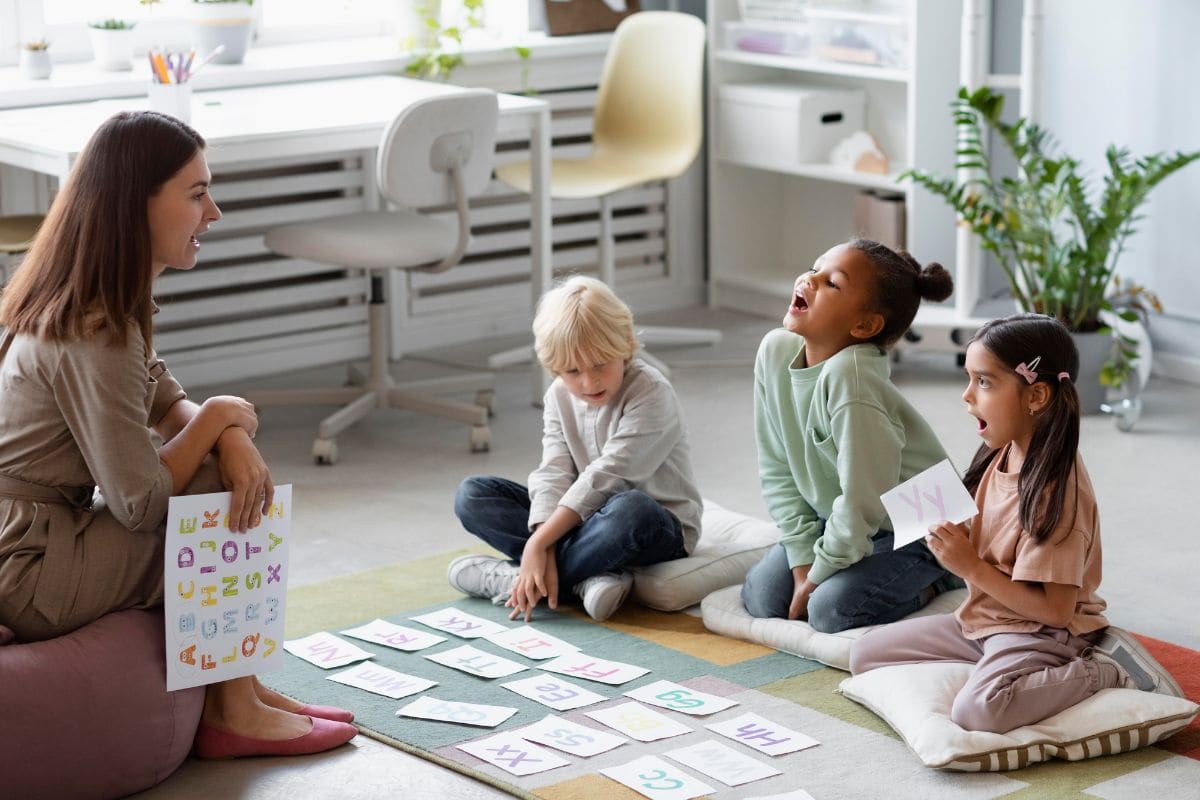The Official Joy Berry Website
Helping Kids Help Themselves
become responsible, happy, and successful
Menu
Menu
The Official Joy Berry Website > Blog > Living Skills > Empowering Parents with Social-Emotional Learning
Empowering Parents with Social-Emotional Learning
by Joy Berry
on September 30, 2023
Sabotoging Kids With STINKIN’ THINKIN’
Harmful Stinkin’ Thinkin’
Most parents want to do what is best for their children. However, this goal is often prevented by Stinkin’ Thinkin’.
Stinkin’ Thinkin’ consists of the parental misconceptions that can sabotage a child’s ability to grow and succeed.
Stinkin’ Thinkin’ includes the following:
1. Childhood is a time of innocence during which children should be protected from the “unpleasant realities” that often plague the lives of adults.
2. Their dependence on adults for basic necessities such as food, shelter, and clothing indicate that children are incapable of functioning autonomously and/or responsibly. Therefore, they should not be expected to do so.
3. Since children are not expected to live their own lives, it is not necessary for them to learn the information and skills that would enable them to do so.
Adverse Effects of Stinkin’ Thinkin’
Unfortunately, Stinkin’ Thinkin’ can have the following adverse effects on children:
1. At a time when human beings are most receptive to learning new information and skills, children’s minds are being lulled into complacency by entertaining programs and materials that are designed to distract children rather than help them to face and deal with important life issues.
2. The dependence, rather than responsible autonomy, that is fostered in children often leaves them feeling out-of-control and frustrated, while their parents can feel overburdened and resentful. This results in strained parent-child relationships and thwarted, unfulfilled lives for both parents and children.
3. At a time in life when children should be learning through experience how to face and deal with life’s challenges, they are not equipped to do so. This results in the accumulation and exaggeration of problems. These problems and attempts to resolve them can hinder children from becoming healthy, productive adults.
Replacing Stinkin’ Thinkin’
The antidote for Stinkin’ Thinkin” is to replace it with the following insights:
1. When handled appropriately, life’s “unpleasant realities” can become life’s most positive experiences. Thus, children should not be sheltered from “unpleasant realities.” Instead, they should be taught how to respond to these realities in intelligent, responsible ways, and then encouraged to do so.
2. All normal human beings, no matter how young or old, are capable of living their own lives efficiently and effectively with a minimal amount of outside assistance.
3. In order to live life efficiently and effectively; it is necessary to have the information and skills to do so.
Eradicating Stinkin’ Thinkin’
Over 40 years ago, I made a commitment to eradicating Stinkin’ Thinkin’ by doing the following:
1. Develop Living Skills and Social Emotional Learning programs and materials that would help put into proper perspective the potentially negative input and experiences that children encounter either directly or indirectly during childhood.
2. Develop Living Skills and Social Emotional Learning programs and materials that would reaffirm to children their inherent potential and right to live their own lives intelligently and responsibly.
3. Develop programs and materials that would provide children with the information and skills they need to live life intelligently and responsibly.
Programs And Materials That Eradicate STINKIN’ THINKIN’
The World’s Major Problems
1. The root cause of the world’s major problems is irresponsible people (people who behave in unintelligent, untrustworthy ways). These people create difficult and sometimes detrimental situations for themselves and others.
2. The first step to solving all the world’s major problems is to raise children who are
• responsible for themselves,
• responsible in their relationships with others, and
• responsible in the way they relate to the things in their environments.
Responsibility and Children
1. Children do not naturally assume responsibility for themselves. They are often quick to blame others and seldom assume the responsibility for things going wrong.
2. Children do not naturally assume responsibility in their relationships with others. This is exemplified in the predominance of all-take-and-no-give parent-child relationships in which children expect to receive everything from their parents and give nothing in return. It is also exemplified in the predominance of all-take-and-no-give teacher-student relationships in which children expect to be educated without reciprocating in any way.
3. Children do not naturally assume responsibility for the way they relate to the things in their environment. They are more likely to overindulge in anything that promises immediate pleasure or gratification. This includes things like junk food, TV, and the never-ending onslaught of fads promulgated by other forms of entertainment and advertising.
4. Parents often feel inadequate and guilty about dealing with their children’s irresponsibility. They often lack the information and skills that are needed to raise responsible children, and they feel guilty when they are unable to do so.
5. Children are the key factor in their becoming responsible. It is futile to tell parents “your children need to do this and that,” when it is children, not parents, who need to implement the behavioral changes. Thus, children need to realize that they are ultimately responsible for their lives, and although they cannot always control what happens to them, they can control how they respond to what happens.
Responsibility and Living Skills
1. Because children need to become responsible and because they are not naturally inclined or equipped to do so, they need to acquire basic Living Skills. Living Skills are the skills every person needs in order to live life intelligently and responsibly.
2. Unfortunately, Living Skills are not something children instinctively develop. Unlike motor skills such as reaching, grasping, crawling, and walking, Living Skills cannot be developed as a result of inherent neurological processes. Like academic skills, they can’t be learned without external, instructional input. Living Skills are best learned via the use of self-help materials that present the subject matter in a simple, clear way that children can understand.
Teaching Living Skills
My years of teaching Living Skills to children resulted in the following observations:
1. Exactly what Living Skills should be taught to an individual should be determined by the following factors:
• The skill should relate to an issue that the person encounters frequently, and
• The skill should be important to the person.
2. Exactly when a particular Living Skill should be taught to an individual should be determined by the following factors:
• The developmental needs and interests of the person, and
• The environmental influences that are impacting the person’s life.
3. In order for Living Skills materials to be effective, they need to accomplish the following:
• Define the issue that needs to be addressed,
• Explain how the issue affects the person and the people around him or her
• Provide clear guidelines that can help the person make the issue a positive rather than negative factor in his or her life, and
• Motivate the person to follow through with the guidelines.
CONCLUSION
To find my best-selling Living Skills and Social Emotional Learning programs and materials for kids, go to my website, www.joyberryenterprises.com

Menu
Copyright © 2024 Joy Berry Enterprises. All Rights Reserved.




Leave a reply